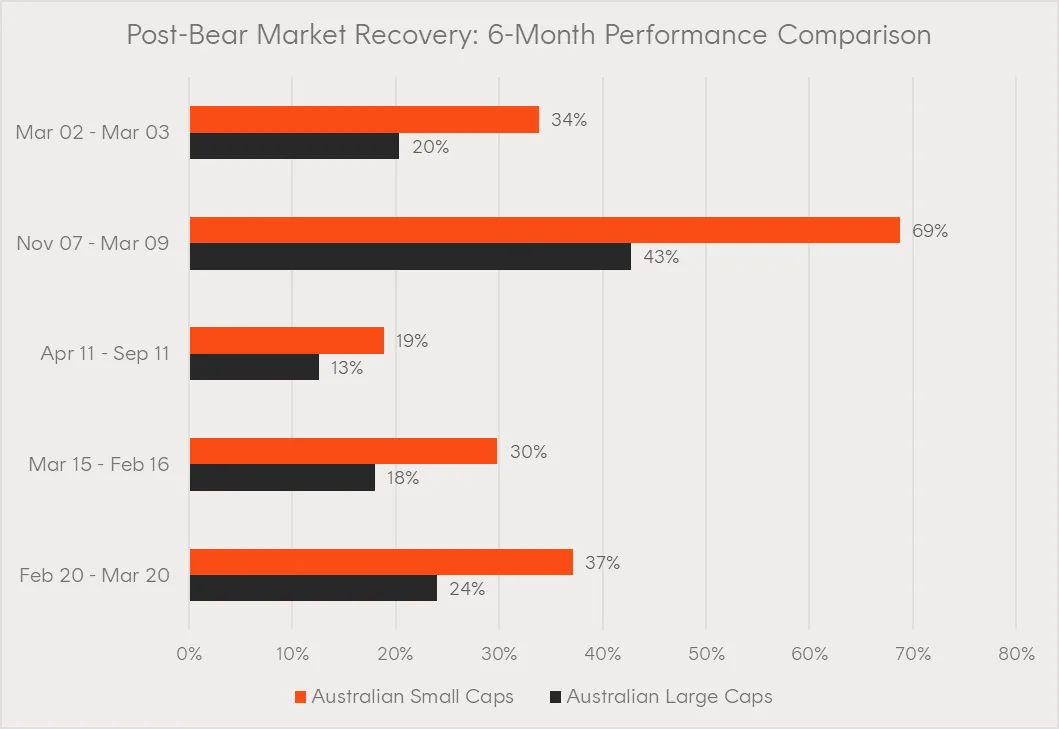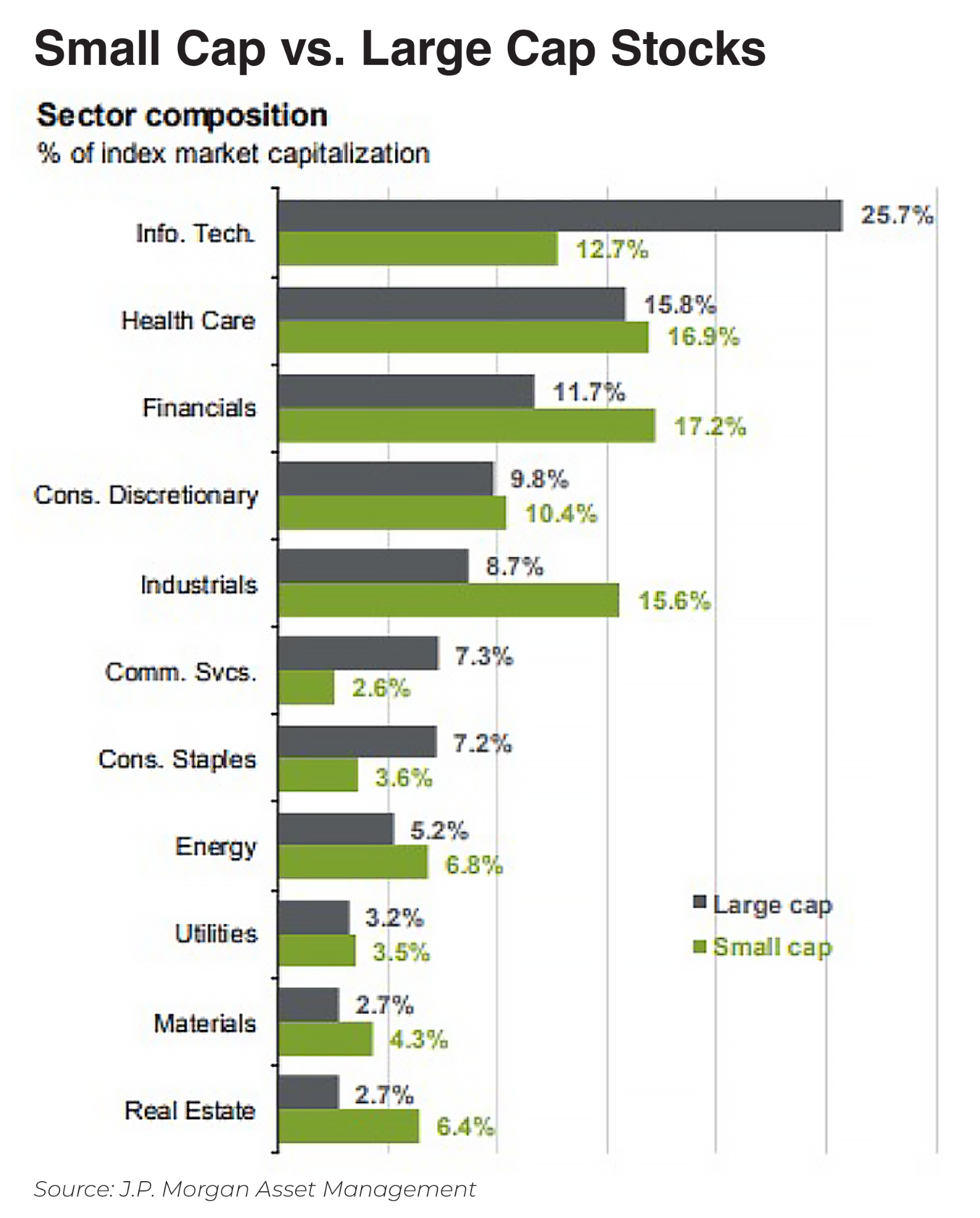
Discover how Australian small-cap funds drive long-term wealth. See how Datt Capital finds undervalued companies through disciplined research and alignment.
~ 3 min. read
By: Datt Capital

In every market cycle, smaller companies sit at the heart of innovation and recovery. While large-cap stocks dominate headlines, small-cap funds have historically delivered stronger long-term growth because they tap into earlier stages of business expansion.
A small company investment fund in Australia typically targets businesses with market capitalisations outside the ASX 100. These companies can scale faster, reinvest earnings at higher returns, and capture niche opportunities that larger peers overlook. For investors who think long term, this segment offers an attractive mix of growth potential and diversification.

Insights: Over the past two decades, Australian small-caps have experienced distinct cycles of expansion and contraction. After major market disruptions such as the Global Financial Crisis and the 2020 pandemic, the S&P/ASX Small Ordinaries Index has shown faster and steeper recoveries than the broader ASX 200. These rebounds reflect the segment’s higher sensitivity to shifts in economic growth and investor sentiment. While large-caps have provided steadier long-term compounding, small-caps continue to offer greater upside potential during phases of renewed confidence and liquidity support.
Disclaimer: The information and data presented are for educational and illustrative purposes only. They do not constitute investment advice or a recommendation to buy or sell any financial product. Past performance is not a reliable indicator of future performance.
Smaller companies are often undervalued in Australia because they receive less analyst coverage and limited institutional attention. This information gap allows skilled, research-driven managers to identify mispriced assets before the market recognises their potential.
"We think that the small cap opportunity is so compelling... The real objective for us is we really want to discover the blue chip companies of tomorrow, today, effectively using the same investment and portfolio management approaches that we've used with our initial fund." - Emanuel.
Over time, successful small-cap firms can progress into mid-cap or large-cap status, rewarding early investors with compounding capital gains.
Following the 2020 pandemic drawdown, for instance, the Small Ordinaries Index recovered 70 per cent in twelve months while the ASX 200 rose 39 per cent. That rebound highlights how agility can translate into accelerated performance.
The same traits that drive growth can introduce volatility. Small-cap stocks experience sharper price movements, thinner liquidity, and higher sensitivity to sentiment.
A disciplined investment fund manager in Australia manages these risks by
During the 2022 rate-tightening cycle, small-caps fell further than large-caps but recovered more rapidly once monetary conditions stabilised, underscoring why patience and process matter.
For investors focused on wealth accumulation, small-cap exposure adds a valuable growth engine. During recovery phases, smaller companies often lead performance as earnings momentum returns.
Portfolios built through a structured, evidence-based process can outperform across full cycles. Managers allocate capital to businesses trading below intrinsic value, capturing upside while limiting drawdowns.
A 25 per cent decline requires a 33 per cent recovery just to break even. Protecting capital early in a downturn helps compounding continue without interruption. This is a core principle of disciplined small-cap investing.
At Datt Capital, we manage the Datt Small Companies Fund, focusing on high-quality, under-researched Australian businesses with clear pathways to growth.
Our process combines:
This framework helps identify overlooked investment opportunities early in the growth curve.
Recent years have shown how quickly cycles can shift. Inflation, policy change, and global supply adjustments continue to redefine valuations. Flexibility and deep research now matter more than scale.
Small-cap funds provide targeted exposure to innovation in resources, energy transition, healthcare, technology, and industrial efficiency. Within diversified portfolios, they complement absolute return strategies and improve long-term risk-adjusted outcomes.

Insight: Small-cap companies show greater representation in industrials, financials, and energy, while large-caps remain dominated by technology and communication services. This broader industrial and cyclical exposure helps explain why small-caps often outperform during early recovery phases when business investment and consumer demand begin to rise.
Disclaimer: The information and data presented are for educational and illustrative purposes only. They do not constitute investment advice or a recommendation to buy or sell any financial product. Past performance is not a reliable indicator of future performance.
Successful investing depends on understanding where growth and value intersect. Small-cap investing, when guided by discipline and alignment, can build wealth steadily over time.
The Datt Small Companies Fund follows that philosophy through rigorous research, independent thinking, and active capital protection. It aims to help investors capture sustainable long-term returns.
Visit the Datt Small Companies Fund page or contact our team for further information.
A small-cap fund invests in companies outside major indices, capturing early-stage growth and undervalued opportunities.
They can be more volatile, yet disciplined research and diversification help manage risk while preserving upside potential.
Investors seeking long-term capital growth, diversification, and access to emerging sectors within Australia.